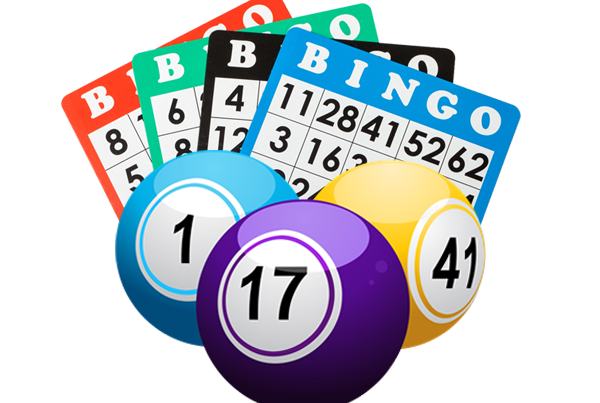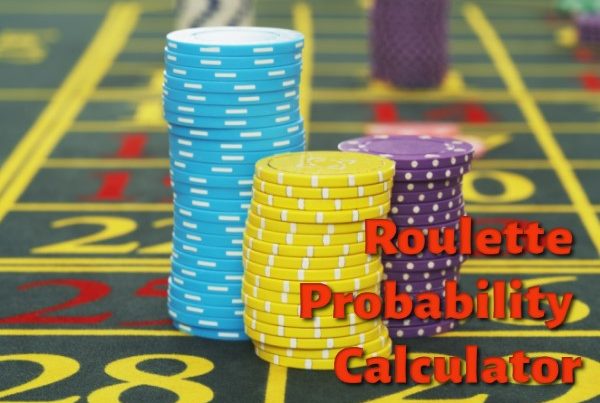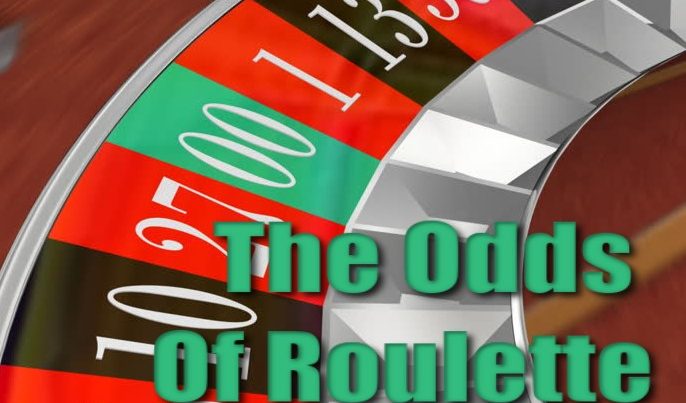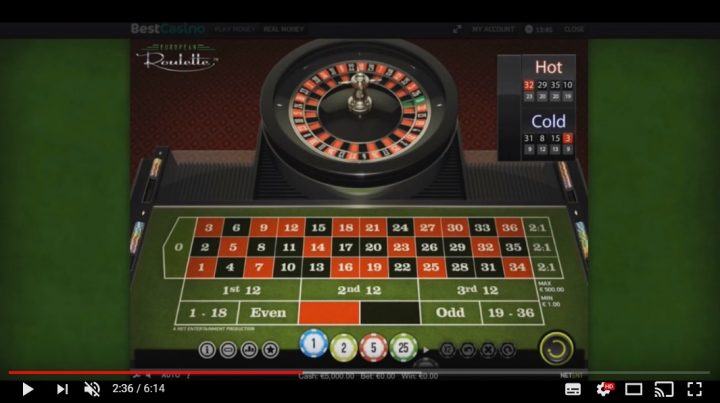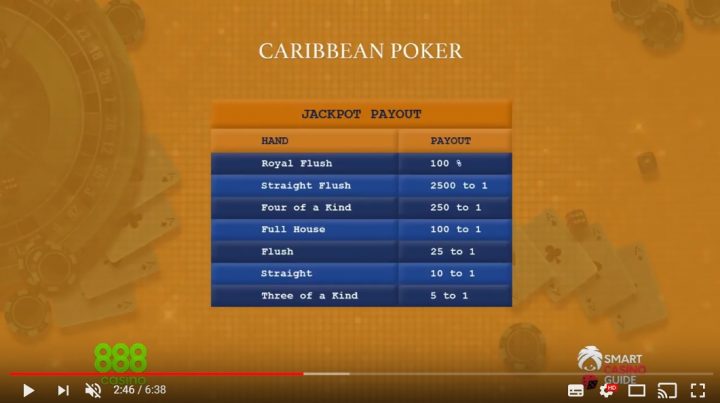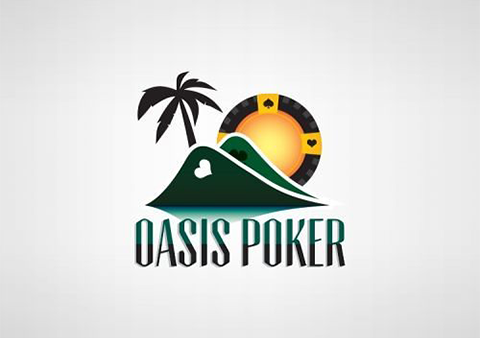Casino Gambling License – why it is important?
Online casino licensing authorities oversee the operations of online casinos to ensure they are fair, safe, and responsible. They issue licenses to casinos that meet their strict criteria, and they have the power to revoke licenses if casinos violate their rules.
In this article, we discuss the top licensing authorities.
The Curaçao Gaming License
The Curacao gaming license is a popular choice for online gambling businesses due to its affordability, speed, and versatility. It grants access to a global market with a single license, covering various activities like casinos, sports betting, and lotteries. However, it’s important to be aware of the trade-offs.
Compared to stricter jurisdictions, the Curacao license carries less prestige and may offer weaker consumer protection. So, while it provides a quicker and cheaper entry point, carefully consider your business goals, target audience, and potential drawbacks before choosing this option.
Things to Know
- While the CGL offers a faster and more cost-effective licensing process, licensed operators may face stricter scrutiny from financial institutions and payment processors.
- Due diligence on individual CGL-licensed platforms before engaging in online gaming is crucial.
- Reputable CGL-licensed platforms adhere to industry best practices and prioritize responsible gaming initiatives.
- The CGL is currently undergoing regulatory reforms to align with international standards and adopt a comprehensive responsible gaming policy.
- The future of the CGL’s influence in the online gaming market remains uncertain as regulatory landscapes evolve globally.
The Malta Gaming Authority (MGA)
Malta is often seen more as a tourist destination than a hub for online casinos. However, the Malta Gaming Authority oversees many operators who appreciate the favorable tax system, friendly local banks, and the ability to take bets from anywhere in the world with their license.
Formerly known as the Lotteries and Gaming Authority, the MGA underwent significant changes in 2015 due to controversies surrounding its handling of issues at various poker and casino sites. Despite setbacks, Maltese authorities have worked to rebuild trust, making the MGA one of Europe’s top regulatory bodies for companies servicing the global market.
Now recognized as one of the strictest online gambling regulators, MGA casinos are trusted by players who prioritize security and their rights.
Types of MGA license
Malta Gaming Authority offers several types of licenses:
Class 1 – a license for online casinos. Games there must work using Random Number Generator (RNG);
Class 2 – this license is required for sports betting operators;
Class 3 – it is a type of license which can be used in poker rooms, for bingo games as well as in betting exchanges;
Class 4 – this license is for the casino software providers.
Things to Know
- It is a highly respected and well-regarded online casino licensing authority.
- It has a strict set of rules that casinos must follow, and it regularly audits casinos to ensure they are complying with the rules.
- It is committed to protecting consumers from fraud and other forms of harm.
- It has a good track record of enforcing its rules and taking action against casinos that break the rules.
If you are considering gambling online, it is important to make sure that you are gambling with a casino that is licensed by the MGA. This will help to ensure that you are gambling with a fair and safe casino.
The Gibraltar Gambling Commission (GGC)
The Gibraltar Gambling Commission (GGC), operating under the Gibraltar Regulatory Authority (GRA), plays a crucial role in overseeing and maintaining the integrity of the territory’s remote gambling industry.
Established under the Gambling Act of 2006, the GGC is renowned for its stringent licensing requirements, ensuring only reputable and financially stable companies with a proven track record in responsible gambling practices are granted licenses. This selective approach has attracted some major international brands like Ladbrokes, Coral, and William Hill.
Beyond licensing, the GGC actively enforces regulations to guarantee fair play, consumer protection, and adherence to anti-money laundering measures. This includes maintaining a robust framework for responsible gambling, requiring licensees to implement measures to prevent problem gambling and protect vulnerable individuals.
Additionally, the GGC offers a dedicated complaints handling procedure for users of Gibraltar-licensed gambling sites, providing a platform for resolving disputes and ensuring consumer rights are upheld.
Types of Gambling license Gibraltar
GBGA license has several options for various gambling activities:
- Bookmaker and betting intermediary license;
- Gambling machine licence;
- Remote Gambling license.
Most of the online casinos seek to obtain a remote gambling license so they can have a prestigious license and focus on the customers from Europe.
Things to Know
- Requires licensees to implement responsible gambling measures like self-exclusion programs.
- Open to new technologies and business models while upholding regulatory standards.
- Regularly audits licensees and takes strict action against non-compliance.
- Acknowledged for its robust licensing process and commitment to consumer protection.
- Compared to the UKGC and MGA, it caters to a more focused selection of operators.
- Maintains a publicly accessible licensees’ register and publishes enforcement actions taken.
The United Kingdom Gambling Commission (UKGC)
Established by the Gambling Act of 2005, the UK Gambling Commission (UKGC) took over from what was then called the Gaming Board for Great Britain in 2007. It regulates most forms of betting in the United Kingdom, with the exception of sports betting, which is handled separately.
As part of its duties, the UKGC oversees remote betting, which includes the licensing of online gaming sites. While a license from the UKGC has always been prestigious, such a designation has become even more important since the passage of the Gambling Licensing and Advertising Bill.
That legislation not only introduced a point-of-consumption tax for remote betting in the UK, but it also required any company that wanted to take bets from UK customers to obtain a license with the UKGC. This has been a controversial change: some companies have chosen to abandon the UK market rather than comply, while the Gibraltar Betting and Gaming Association has challenged the move in court.
Types of UKGC license
According to the gambling activity, UKGC issues different licenses:
- Casino license;
- Bingo license;
- Common betting operation license;
- Betting exchange license;
- Betting broker license;
- License for the lotteries.
It is worth mentioning that if the company wants to carry out several gambling activities on one website like a casino, sports betting, bingo, poker, and so on, then several different licenses will be required.
Things to Know
- It is a highly respected and well-regarded online casino licensing authority.
- It has a strict set of rules that casinos must follow, and it regularly audits casinos to ensure they are complying with the rules.
- It is committed to protecting children and vulnerable people from the harms of gambling.
- It has a good track record of enforcing its rules and taking action against casinos that break the rules.
The Alderney Gambling Control Commission (AGCC)
Established in 2000, the Alderney Gambling Control Commission (AGCC) oversees online gambling businesses in Alderney, a British Crown dependency. It’s known for its strict rules and focus on responsible gambling.
The AGCC ensures fair play and transparency by enforcing tough licensing regulations covering finances, responsible gambling, and game fairness. It also works to protect players, especially children and vulnerable individuals, through age verification and promoting responsible gambling tools.
Also, the AGCC maintains the integrity of online gambling by auditing operators and collaborating with international regulatory bodies. Getting an AGCC license is prestigious but challenging, requiring operators to meet high standards and comply with complex regulations.
Things to Know
- Choosing an AGCC-licensed casino offers assurance of fairness, player protection, and responsible gambling practices.
- The AGCC may have fewer licensed operators compared to larger authorities like the UKGC or MGA.
- Thorough research on individual AGCC-licensed platforms is always recommended before playing.
- The AGCC enjoys a good reputation for its practical approach and focus on innovation within the regulatory framework.
- It is not a member of the International Association of Gaming Regulators (IAGR) but collaborates with other regulatory bodies worldwide.
The AGCC actively engages with industry stakeholders and participates in discussions on responsible gambling initiatives and it also plays a role in the regulation of crypto gambling, being one of the few whitelisted exceptions in the UK Gambling Act.
The Isle of Man License
The Isle of Man (IoM) license, issued by the Isle of Man Gambling Commission (IGC), is known for its strict regulations and focus on responsible gambling, offering advantages for operators seeking a reputable and well-regulated environment.
The IGC enforces stringent regulations, ensuring fair play, responsible gambling practices, and anti-money laundering measures, building trust among players and industry stakeholders. Active promotion of responsible gambling initiatives and tailored license options for various online gambling activities further enhance its appeal.
Yet, obtaining an IoM license can be more expensive and time-consuming compared to some other jurisdictions, and it may not grant access to markets with stricter regulations. Despite these considerations, the IoM license remains a prestigious and respected choice for online gambling businesses aiming for a highly regulated and responsible operating environment.
Things to Know
- The IoM license is known for its strict regulations and focus on responsible gambling, granting operators a high level of credibility and trust among players and industry stakeholders.
- The Isle of Man Gambling Commission (IGC) enforces rigorous regulations, ensuring fair play, responsible gambling practices, and compliance with anti-money laundering measures.
- Obtaining an IoM license involves a comprehensive application process, financial checks, and ongoing compliance requirements. This can be more expensive and time-consuming compared to other jurisdictions.
- The IGC offers various license types catering to specific online gambling activities, providing flexibility for operators.
What is a Casino License and Why is It Important?
A casino license is a crucial legal document issued by governmental authorities, granting permission to operate a casino within a specific jurisdiction. This license outlines the terms and conditions under which the casino can function, encompassing various regulations related to gaming activities, security protocols, responsible gambling practices, and financial obligations.
First and foremost, obtaining a casino license is pivotal for establishing the legitimacy of the casino. It serves as a clear indicator to customers and stakeholders that the establishment operates within the confines of the law and adheres to regulatory standards. This assurance of legitimacy is essential for building trust among patrons and attracting a loyal customer base.
Furthermore, a casino license comes with a set of regulatory requirements that must be met to maintain compliance. These regulations cover a wide range of aspects, including fair gaming practices, player protections, anti-money laundering measures, and responsible gambling initiatives. Compliance with these regulations is imperative for retaining the license and avoiding potential legal consequences.
In addition to regulatory compliance, a casino license plays a vital role in ensuring consumer protection. Regulatory bodies oversee licensed casinos to enforce measures aimed at safeguarding players’ interests. These measures can include fraud prevention, fair gaming enforcement, and providing mechanisms for dispute resolution. Such oversight helps foster a safe and secure gambling environment for patrons.
Financial integrity is another significant aspect associated with obtaining a casino license. To acquire and maintain a license, casinos typically need to demonstrate financial stability and meet specific financial requirements. This ensures that the casino has the necessary resources to fulfill its financial obligations, including paying out winnings to players and operating in a financially responsible manner.
Moreover, a casino license enhances public trust and confidence in the establishment. Players are more likely to feel comfortable gambling at a licensed casino, knowing that it operates under regulatory scrutiny and is held accountable for its actions. This trust not only benefits the casino in terms of attracting customers but also contributes to the overall integrity of the gambling industry.
Lastly, holding a casino license can also facilitate business operations by attracting investors and business partners. Investors and partners are more inclined to engage with licensed operations due to the reduced legal and reputational risks associated with licensed establishments. Therefore, a casino license serves as a mark of operational credibility, which can aid in securing investments and fostering strategic partnerships.
Key Objectives of Licensing Authorities
The key objectives of online casino licensing authorities are largely aligned with the broader goals of general licensing authorities but with a specific focus on the online gambling environment.
Below, you can find a detailed overview of the key objectives:
Protecting Consumers:
- Preventing gambling addiction and problem gambling: This involves implementing measures like age verification, responsible gambling tools (deposit limits, self-exclusion), and ensuring fair play and transparency in games.
- Ensuring consumer protection: This includes safeguarding players’ financial information, preventing fraudulent activity, and guaranteeing fair payouts and responsible advertising practices.
Preventing Crime and Money Laundering:
- Combating illegal gambling: Licensing authorities work to identify and shut down unlicensed operators, preventing them from exploiting players and potentially facilitating criminal activity.
- Mitigating money laundering risks: They implement strict Know Your Customer (KYC) procedures, monitor transactions for suspicious activity, and cooperate with law enforcement to prevent online casinos from being used for money laundering purposes.
Ensuring Fair Play and Responsible Gambling:
- Guaranteeing game integrity and fairness: Licensing authorities ensure games use certified random number generators (RNGs) and are free from manipulation, protecting players from unfair practices.
- Promoting responsible gambling practices: They encourage operators to implement responsible gambling tools and initiatives, educate players about potential risks, and cooperate with organizations providing support for problem gamblers.
Maintaining a Competitive and Regulated Market:
- Issuing licenses to qualified operators: This ensures only reputable and financially sound companies can operate online casinos, fostering a competitive and fair market environment.
- Enforcing licensing regulations and compliance: Licensing authorities monitor operators’ activities, investigate potential breaches, and impose sanctions for non-compliance, maintaining the integrity of the market.
Generating Tax Revenue:
- Collecting licensing fees and taxes from online casinos: This contributes to government revenue streams, potentially used to fund various public services or initiatives related to problem gambling prevention and social responsibility.
Powers and Responsibilities of Licensing Authorities
The main powers and responsibilities can be broadly categorized into the following areas:
Licensing and Regulatory Powers:
- Granting, suspending, and revoking licenses: This allows them to control who can operate online casinos within their jurisdiction, ensuring only qualified and compliant operators are present.
- Setting licensing criteria and conditions: They establish specific requirements operators must meet to obtain and maintain a license, covering aspects like financial stability, responsible gambling practices, and game fairness.
- Conducting investigations and audits: Licensing authorities have the power to investigate potential breaches of regulations, audit operators’ financial records, and assess compliance with licensing conditions.
- Imposing sanctions: In case of non-compliance, they can impose various penalties, including fines, license suspensions, or even revocations.
Consumer Protection and Responsible Gambling:
- Approving responsible gambling tools and initiatives: Licensing authorities assess and approve the effectiveness of tools like deposit limits, self-exclusion programs, and age verification measures employed by operators.
- Monitoring advertising practices: They oversee marketing and advertising activities of online casinos, ensuring they comply with regulations and promote responsible gambling practices.
- Collaborating with problem gambling organizations: They work with relevant entities to provide support and resources to individuals struggling with gambling addiction.
Ensuring Fair Play and Game Integrity:
- Approving game providers and software: Licensing authorities assess the fairness and randomness of games offered by online casinos, ensuring they use certified random number generators (RNGs) and operate without manipulation.
- Monitoring game activity and transactions: They have the authority to monitor game operations, player activity, and financial transactions to detect suspicious behavior or potential cheating.
- Collaborating with international regulatory bodies: They cooperate with other jurisdictions and international organizations to share information and combat illegal gambling activities.
Financial Oversight and Anti-Money Laundering:
- Implementing Know Your Customer (KYC) procedures: Licensing authorities require operators to verify the identity and source of funds of their players, helping to prevent money laundering and other financial crimes.
- Monitoring financial transactions: They oversee financial activities of online casinos to identify suspicious patterns or potential money laundering attempts.
- Reporting suspicious activity to financial authorities: They have a responsibility to report any suspected financial crimes to relevant authorities for further investigation and prosecution.
Information Sharing and Transparency:
- Maintaining public registers of licensed operators: This allows players to easily verify the legitimacy of online casinos and make informed decisions.
- Publishing reports and data: Licensing authorities may publish reports on their activities, compliance findings, and the overall state of the online gambling market within their jurisdiction.
- Collaborating with stakeholders: They engage with industry representatives, consumer protection groups, and other stakeholders to foster a transparent and responsible gambling environment.
Categorization of Gambling Jurisdictions
Gambling jurisdictions can be categorized in a few different ways, depending on the specific aspect you’re interested in.
Here are a couple of common approaches:
By geographical location
- National jurisdictions: These are regulatory bodies established by individual countries to oversee gambling activities within their borders. Examples include the UK Gambling Commission (UKGC), the Malta Gaming Authority (MGA), and the Gibraltar Gambling Commission (GGC).
- Supranational jurisdictions: These are regulatory bodies that oversee gambling activities across multiple countries or regions. An example is the European Union, which has harmonized some gambling regulations across its member states.
- Offshore jurisdictions: These are jurisdictions with relatively light-touch regulations that attract online gambling operators seeking easier licensing processes. Curaçao and Alderney are examples of offshore jurisdictions.
By type of license offered
- Land-based gambling licenses: These licenses authorize operators to run physical casinos, bingo halls, and other land-based gambling establishments.
- Online gambling licenses: These licenses authorize operators to offer online casino games, sports betting, poker, and other forms of online gambling.
- Lottery licenses: These licenses authorize operators to run lottery games.
By regulatory approach
- White-list jurisdictions: These jurisdictions have stringent regulations and are considered to be high-quality. The UKGC and MGA are often seen as white-list jurisdictions.
- Gray-list jurisdictions: These jurisdictions have less stringent regulations and may be viewed with some caution. Curaçao is sometimes considered a gray-list jurisdiction.
- Black-list jurisdictions: These jurisdictions are considered to have poor or inadequate regulations and should be avoided by players.
Additional factors
- Taxation: Different jurisdictions have different tax rates for gambling operators, which can influence where they choose to license.
- Language: Some jurisdictions focus on specific languages or markets, which can be relevant for players seeking a particular experience.
- Technological innovation: Some jurisdictions are more welcoming to emerging technologies like cryptocurrencies in the gambling space.
It’s important to note that the categorization of jurisdictions can be nuanced, and there is no single definitive way to do it. Some jurisdictions may fall into multiple categories depending on the specific aspect you’re considering. Always do your own research and due diligence before engaging in any form of online gambling, regardless of the jurisdiction.
Why Licensing is Important?
Casino licenses are crucial for a variety of reasons:
For Players
- Safety and Security: A license signifies that the casino operates under a regulatory body’s oversight, ensuring adherence to strict legal and ethical guidelines. This translates to fair gameplay, secure financial transactions, and data protection for players.
- Dispute Resolution: Licensed casinos provide avenues for resolving disputes if things go wrong. Regulatory bodies have procedures for investigating complaints and enforcing compliance, offering players recourse in case of unfair treatment.
- Responsible Gambling: Regulations often mandate responsible gambling practices like age verification, self-exclusion options, and deposit limits, promoting responsible play and minimising risks for vulnerable individuals.
- Consumer Protection: Licenses often stipulate fair bonus terms, clear payout procedures, and transparent game information, protecting players from misleading practices and ensuring a fair and enjoyable experience.
For the Industry
- Legality and Credibility: Licenses legitimise casino operations, allowing them to function lawfully and attract players with trust. Operating without a license is illegal and carries significant penalties.
- Financial Stability: Regulatory bodies often require financial stability checks from operators, ensuring they have the resources to fulfil payouts and maintain responsible financial practices.
- Fair Competition: Licensing standards level the playing field by setting minimum requirements for all operators, promoting healthy competition within the industry.
- Innovation and Growth: Responsible regulation fosters innovation by encouraging operators to develop ethical and sustainable business practices, ultimately aiding the industry’s long-term growth.
Casino licenses act as a crucial safeguard for both players and the industry, ensuring fairer, safer, and more responsible gambling environments. Choosing a licensed casino offers peace of mind and minimises risks, while promoting a sustainable and responsible industry for all stakeholders.
Conclusion
Casino licenses act as guardians for both players and the industry. They ensure fair play, secure transactions, and responsible gambling practices. Players benefit from dispute resolution, consumer protection, and responsible gambling measures.
Licenses legitimize casinos, promote financial stability within the industry, and foster fair competition. Ultimately, licensing creates a safer and more enjoyable gambling experience for everyone.
It is a confirmation that the company is working legally, comply with the provisions, and can ensure payouts for the players.
During the registration procedure players share their personal information, bank details, and make payments. The license confirms that the company is trustworthy, can properly work, and ensure the safety of your money and information.
Malta Gaming Authority (MGA), Curacao e-Gaming, and UK Gambling Commission licenses are the most popular ones.
European licenses like UKGC, Gibraltar’s, or Malta’s are the safest.
Yes, the majority of online casinos that have this licence are completely safe. However, to be a hundred percent sure, read some reviews before playing. You can find plenty of casino reviews in the Casino News section.
Never play in casinos that do not have a license. You will be in danger of being scammed by doing that.
It depends. Curacao gaming license may cost around 25 000€ in total while Gibraltar gambling license may cost over 100 000€ per year.
















